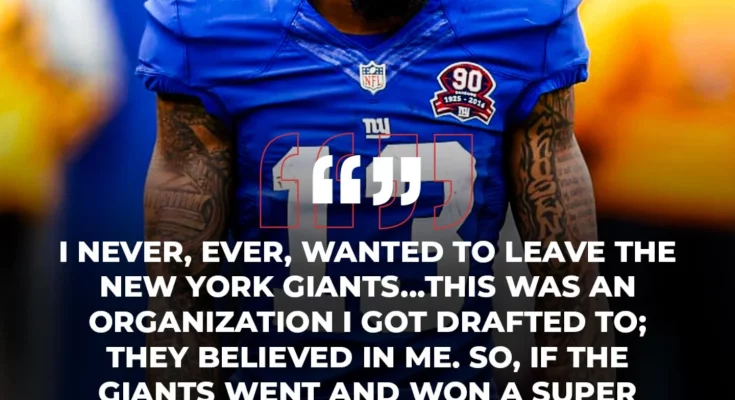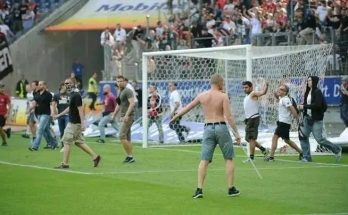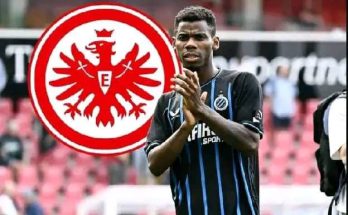“I never ever wanted to leave the New York Giants,” Odell Beckham Jr. said, his voice heavy with the weight of time, regret, pride, and memory. For some, it was just a quote. For others, it was a dagger twisting in the heart of a franchise that once embraced him like a son and let him go like a stranger. The words echoed louder than any touchdown celebration, more resounding than any one-handed catch, and more haunting than any injury. It was the truth, plain and powerful. The truth of a player who once lit up MetLife Stadium with electricity in every step, who made fans believe in the magical, the spectacular, the impossible. But also the truth of a man whose heart never truly left the place he called home, even when the jersey changed, the city changed, and the circumstances changed.
Odell Beckham Jr.’s love affair with New York wasn’t just about football. It was a cultural union. He wasn’t just a wide receiver; he was a New York icon. He brought the flair, the fashion, the fire, and yes, sometimes the frustration. But he brought it with the unmistakable stamp of authenticity. New Yorkers—famously hard to impress and harder to keep—embraced OBJ like they did few athletes before him. In his first three seasons, Beckham was on a trajectory rarely seen in NFL history. He was rewriting record books, shattering expectations, and making the Giants must-watch TV again. The catches weren’t just catches; they were art. The touchdown dances weren’t just celebrations; they were expressions of soul. And the connection between Odell and the fans wasn’t transactional—it was deeply emotional.
Yet, the fairy tale began to fray. Injuries, locker room controversies, front office discontent, and media scrutiny created a slow, simmering fracture. The Giants were a franchise in transition—some might say turmoil—and Beckham, in many ways, represented both the best and the boldest of what they could be, and also what they feared. His passion was mistaken for rebellion. His individuality clashed with tradition. His transparency was viewed as volatility. The very traits that made him magnetic on Sundays made him a lightning rod on Mondays.
Still, Odell Beckham Jr. never wanted to go. He never lobbied to be traded. He never asked out. Even as the critics grew louder and the friction inside the building became undeniable, Beckham stood firm in his desire to remain in blue. It wasn’t just about comfort or contracts. It was about identity. The New York Giants were more than just the team that drafted him—they were his foundation, his launchpad, and in many ways, his mirror. He resonated with the city’s edge, its resilience, its relentlessness. He understood New York in a way that felt almost poetic: beautiful and brutal, loud and lonely, loved but never coddled.
When the news broke in March 2019 that Beckham had been traded to the Cleveland Browns, it wasn’t just a transaction—it was a cultural shift. It marked the end of an era, not just for the Giants, but for the NFL. OBJ in New York was a symbol of a new breed of superstar—one who was both influencer and athlete, who blended social media savvy with on-field brilliance. In Cleveland, he was still a name, still a presence, but never quite the same. Injuries followed. So did coaching changes, quarterback drama, and organizational inconsistency. The same explosiveness was there in flashes, but the fire didn’t feel as bright. The magic, if it was still alive, flickered more than it flamed.
Even so, Beckham never soured on New York. He never badmouthed the team publicly. He never took cheap shots at former teammates or tried to erase his time with the Giants. In fact, the opposite happened. Over time, OBJ’s reverence for the Giants only deepened. He would post throwback highlights. He would praise Saquon Barkley. He would speak fondly of Eli Manning. And now, as he reflects on his career—on what was, what is, and what might have been—he makes it crystal clear: “I never ever wanted to leave the New York Giants.”
It’s a sentiment that carries more weight now, in the twilight of his career, than it might have years ago. Because it comes not from a place of bitterness, but from clarity. A clarity that only time can bring. Odell knows he’ll forever be tied to that one-handed catch against the Cowboys on Sunday Night Football. He knows that Giants fans still wear his jersey. He knows that for a moment in time, he was New York. And maybe that’s what makes it all the more heartbreaking. Because so many fans didn’t want him to leave either.
The Giants organization, for all its history and prestige, has often struggled with the balance between discipline and dynamism. Beckham’s departure was, in many ways, a symptom of that struggle. He represented a new era, but the franchise wasn’t ready to embrace it fully. And yet, his absence created a vacuum that has never truly been filled. Wide receivers have come and gone. Stars have risen and fallen. But no one has captured the city’s imagination quite like Beckham. No one made the Giants feel that alive.
His return to MetLife Stadium as an opponent never felt right. It felt like watching a great actor play the wrong role in a different movie. The jersey didn’t match the storyline. The cheers, while warm, carried an undercurrent of sorrow. The question wasn’t just “What if?” It was “Why?” Why did it have to end like this? Why couldn’t they make it work? Why does it still hurt?
Beckham’s journey since New York has been winding. His stint with the Browns ended in mutual frustration. His time with the Rams gave him the Super Bowl ring he longed for, but it also gave him another devastating injury. A short spell in Baltimore brought hope, but again, injuries and inconsistency reared their head. Through it all, he has remained a fighter—still training, still believing, still chasing greatness. But that chase has always carried the ghost of what could’ve been had New York remained his home.
When Odell speaks now, it’s with more reflection than reaction. He isn’t the brash young star firing back at critics or spouting off in frustration. He’s measured. He’s thoughtful. He’s seasoned. And in that maturity comes the truest expression of his feelings: loyalty. His love for the Giants wasn’t conditional. It wasn’t performance-based. It was real. It was human. It was, in many ways, unrequited.
That type of bond is rare in modern sports. Players move teams like chess pieces. Loyalty is often replaced with leverage. But Beckham’s words ring differently. They cut through the noise. They remind us that behind the headlines and highlight reels are human beings with dreams, doubts, and deep connections. Odell Beckham Jr. didn’t want out. He didn’t want to start over. He didn’t want to say goodbye to the stadium that roared for him, the teammates who bled with him, the city that crowned him.
And yet, like many great artists, he was misunderstood in his time. Some thought he was a distraction. Some thought he cared more about the brand than the ball. But time has clarified the truth: Beckham was one of the most passionate, devoted, and talented players ever to don the Giants uniform. He didn’t want the fame without the football. He didn’t want the limelight without the love of the game. And he didn’t want to leave. He wanted to build something. Something lasting. Something legendary.
As the NFL world continues to churn—new stars rising, old ones fading—OBJ’s legacy remains unique. He was never just a player. He was a phenomenon. And his connection to the New York Giants was never just professional—it was spiritual. He may have played elsewhere, but his heart never moved. And in the end, that’s the most heartbreaking part of all.
He never ever wanted to leave. And maybe, deep down, New York never truly wanted him to go either.



